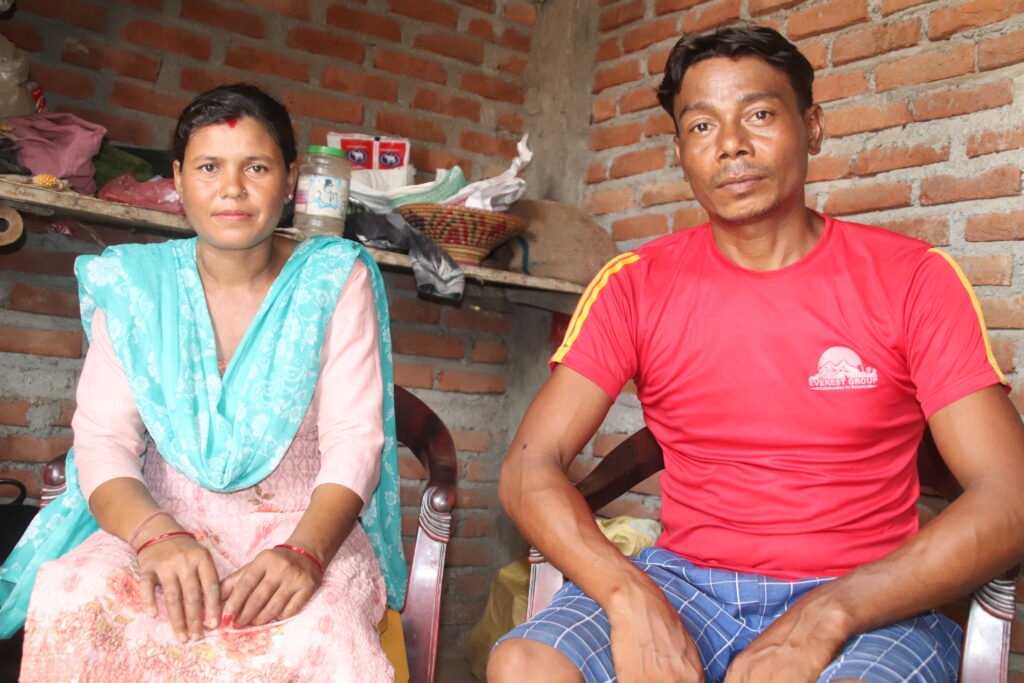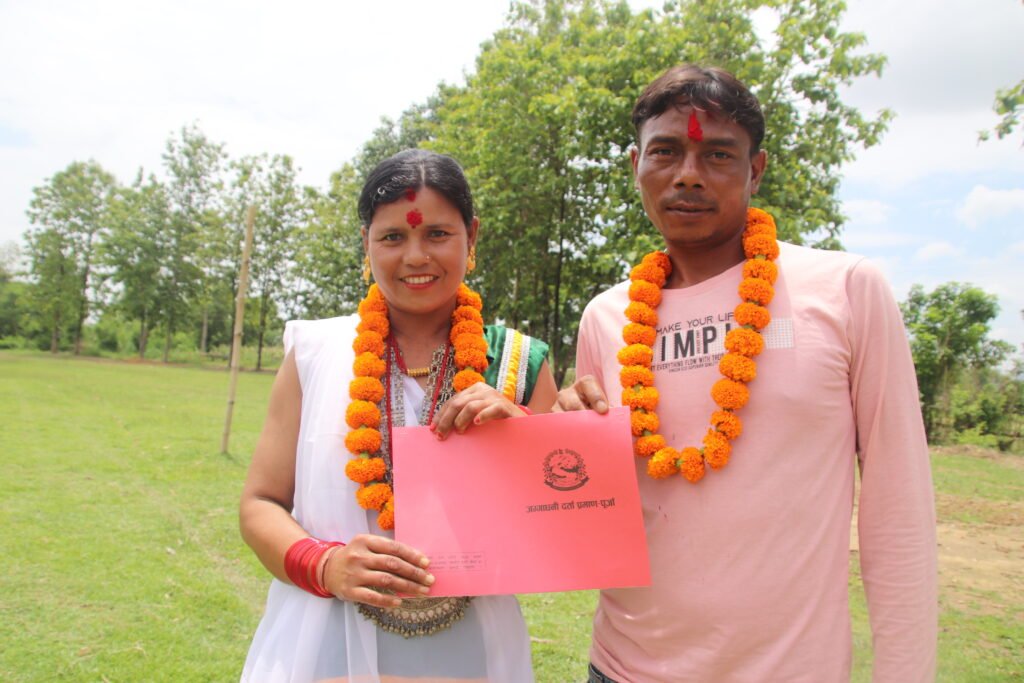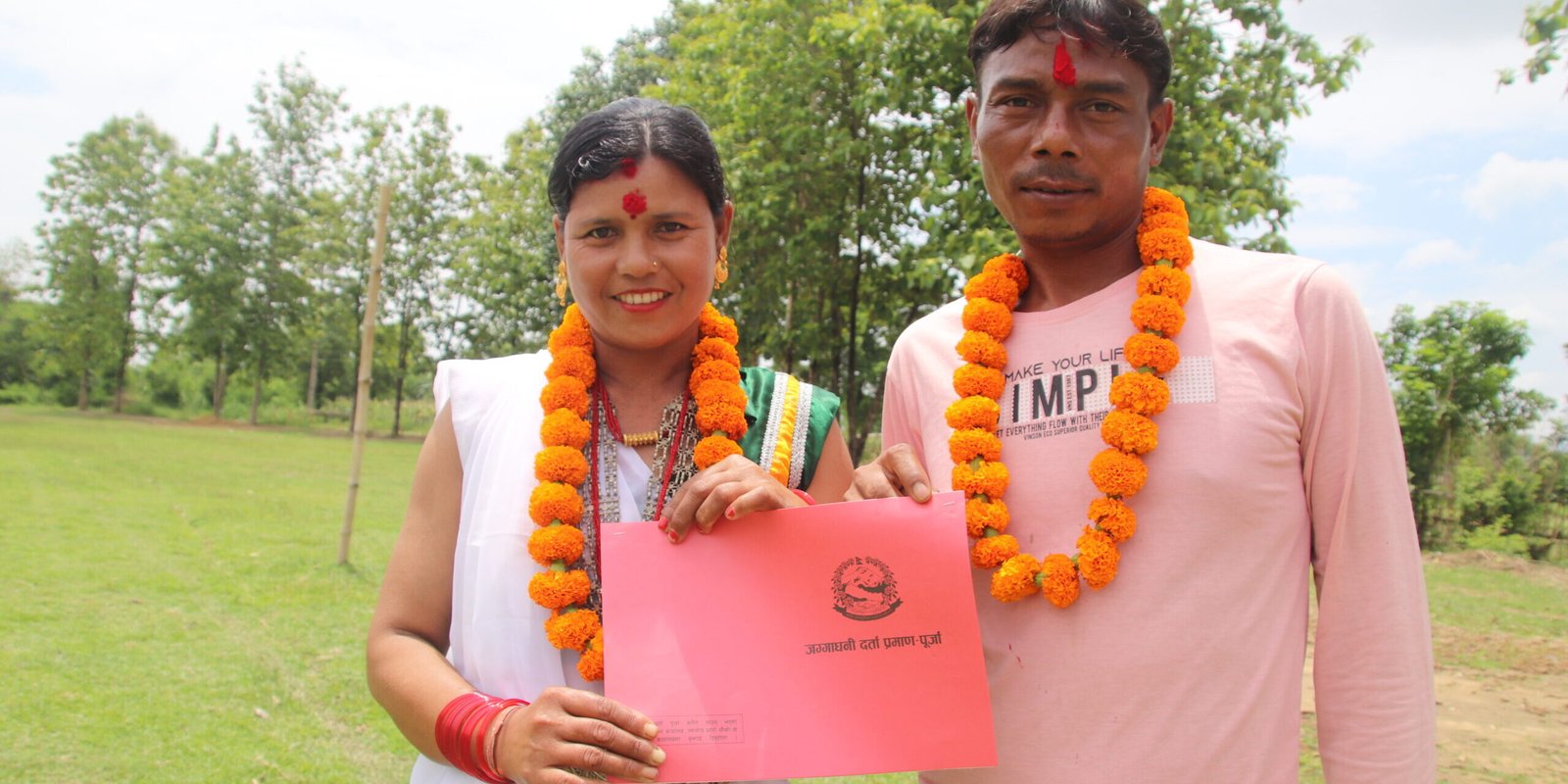From the Margins to Ownership: A Story of Determination in Kanchhi Tole
In Kanchhi Tole- previously known as Masanghat Tole, Ram Prasad Chaudhary (44) and Sarita Chaudhary (37) have built their lives in Ward No. 3 of Lamahi Municipality, Dang. Nestled south of the Mahendra Highway, Kanchhi Tole is a close-knit community of 84 households, primarily of the Tharu community, whose roots run deep in agriculture and seasonal wage labor, some of whom were former bonded laborers (Kamaiya) as well.
Long before this community took shape, the land was used as a traditional cremation ground by residents of the neighboring village, Uttar Majgaon. Over time, it came to be known as Masanghat Tole. The Panchayat era cast a long shadow over the lives of tenant farmers across Nepal, including those here. Local landlords, reassured by power, registered community-cultivated land under their own names or in the names of institutions, leaving generations of cultivators landless. According to community elders, it was during 1988–89 A.D. that a local leader played a key role in resettling displaced families in this very area. The older generations recall that they were relocated because the land they had been living on was considered insufficient.
Among those affected were the ancestors of Ram and Sarita, who once lived on Swargadwari Guthi land. For decades, they were made to relocate from Guthi land to ailani land, and finally to their present home. Sarita is primarily engaged in household chores. She mentions having some health issues, which prevent her from taking up other forms of work. Ram Prasad used to occasionally drive rental vehicles. Their family has been living on this land for over four decades. Their family has been living on this land for over four decades.

The story of Kanchhi Tole is transforming. After four decades of tireless struggle, 23 landless households now hold land ownership certificates in their hands, an achievement that marks a legal recognition and a turning point in their lives.
The program ‘ A safety net of innovative land tenure solutions for near landless and sharecroppers and for a greener rural Nepal L4ACT is currently being implemented by UN-Habitat with funding from Ministry of Agriculture, Food and Rural Affairs (MAFRA) of Republic of Korea and in collaboration with Ministry of Land Management, Cooperatives and Poverty Alleviation (MoLMCPA) Government of Nepal is under implementation in Deukhuri Valley of Dang district and supported by Community Self-Reliance Centre (CSRC), Good Neighbors International (GNI) Nepal, and South Korea based organizations – Korea Rural Economic Institute (KREI) and Korea Land and Geospatial Informatix Corporation (LX).
This milestone has been made possible through the collaborative efforts of the Lamahi Municipality, the Land Issues Resolving Commission Committee, Dang District, the ward office, District Survey Department, and the Land Service Centre with support from the program ‘A safety net of innovative land tenure solutions for near landless and sharecroppers and for a greener rural Nepal L4ACT’.
This joint commitment has turned a long-awaited dream into reality.
Yet, at the heart of this success lies the unshakable willpower and resilience of the community members themselves. Despite systemic barriers and decades of displacement, they stood firm, organized, and hopeful. It is their courage and collective resolve that have brought about this moment of change. Sarita and Ram Prasad have received 0.013 ha of land in their names. Ram Prasad has three brothers, all of whom have received the same amount of land each.
After receiving their land certificate, Sarita’s eyes shine with pride. “People used to mock us for having nothing. Now, we can finally say we are landowners. It may not be much, but it means everything to us. I can plan for my son’s future, maybe even help him go abroad. And being joint land owners? That makes me even prouder,” she shares.

For Sarita and many others, land is more than property, it’s security also. It’s a quiet victory over generations of systemic exclusion. In Kanchhi Tole, the land certificates are not just legal documents, they are declarations of belonging.
Written by: Aparajita Gautam







